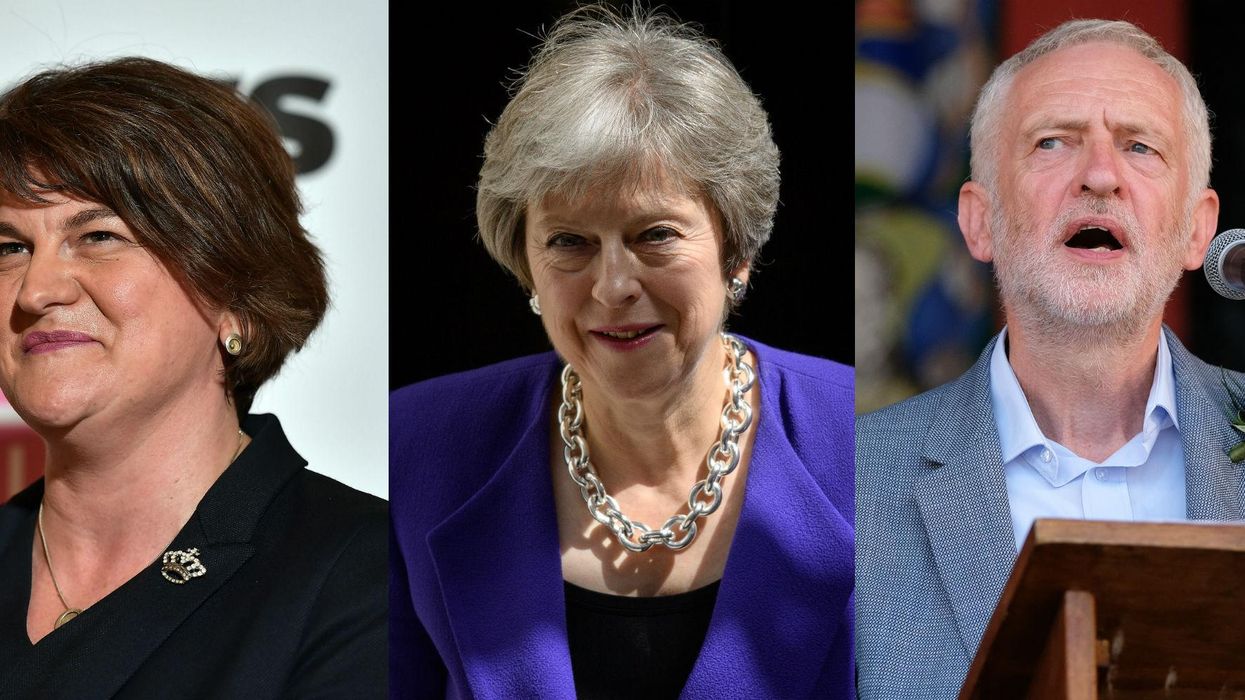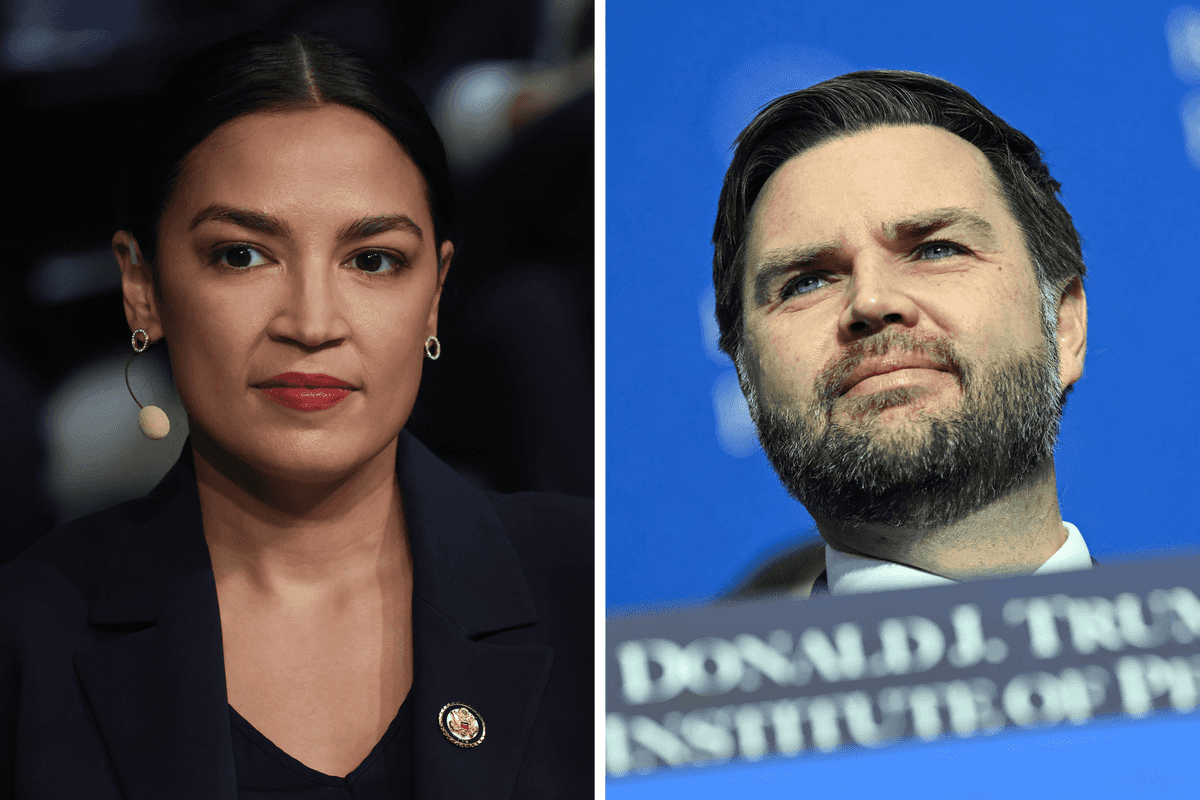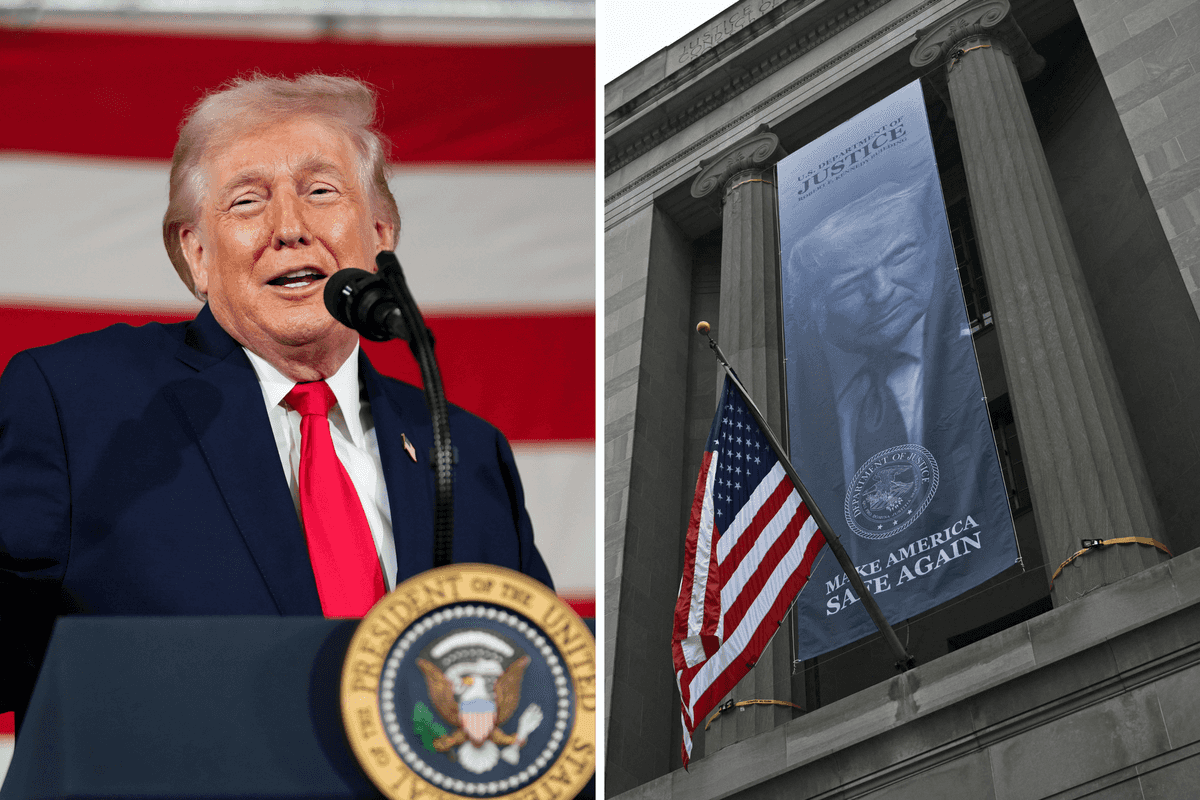News
Lowenna Waters
Jul 19, 2018

Picture:
Getty Images
Prime minister Theresa May is in Northern Ireland for a two-day visit about Brexit, the first since the referendum.
The main purpose of her trip is to try to convince people that her plan for the EU withdrawal will not destroy their livelihoods there.
The Northern Ireland border issue is one of the key sticking points of the Brexit debate and negotiations, because leaving the EU would mean there would have to be border controls between Ireland, which will stay in the EU, and Northern Ireland, which will leave.
Many people who live in the border towns are worried that they will simply become a back-door entrance to the UK, and that a hard border will impact their livelihoods, which depend on free movement.
Nothing has yet been agreed, and claims that there will or won't be border controls are predictions, not facts, at this stage. However, they're still a big concern for the people that live there.
As May makes her visit to the area, after intense criticism of the fact that she hasn't yet visited people who live there to hear what they actually have to say, we round-up what the key players in the Brexit debate want to happen.
Theresa May, prime minister.
Ahead of her first visit to Northern Ireland as prime minister, Theresa May stated that the Conservative Party have 'ruled out any kind of hard border'.
Speaking to the press ahead of the visit, she stated:
I fully recognise how their livelihoods, families and friends rely on the ability to move freely across the border to trade, live and work on a daily basis.
That's why we have ruled out any kind of hard border. Daily journeys will continue to be seamless and there will be no checks or infrastructure at the border to get in the way of this.
Boris Johnson, ex-foreign secretary.
When issuing his resignation speech yesterday in the House of Commons, Johnson stated that the Irish border had become 'politically charged', and was dominating the Brexit debate. Voicing his concerns, he said that the issue of the Irish border "which had hitherto been assumed on all sides to be readily soluble" had been allowed "to become so politically charged as to dominate the debate".
Dominic Raab, Brexit secretary.
Dominic Raab is due to discuss the Brexit border issue with Barnier, the EU's chief Brexit negotiator, in Brussels. His position is widely thought to represent the government's which has been dubbed the counter 'backstop' option for the Irish border. In short, it proposes that the entire territory of the UK and Channel Islands remain part of the customs territory of the EU, thereby avoiding a hard border.
David Davis, ex-Brexit secretary.
Before his resignation, Davis had been accused of 'trying to hide a hard border in a buffer zone', for which he had faced much criticism. His ideas had been mocked, and called 'fantastical', as well as being accused of 'making it up as they go along'. In September 2017 he argued for a 'non-visible' border:
I am confident that using the most up-to-date technology, we can get a non-visible border operational along the border between Northern Ireland and Ireland.
Jeremy Corbyn, leader of the Labour Party.
Jeremy Corbyn has stated that if he was prime minister, he would be neutral in any border poll campaign. He has also stated that he would ensure the Good Friday agreement was implemented "to the letter". During a speech to Queen's University Belfast in May, he also clarified that he wasn't asking for a border poll, just stating how a Corbyn government would handle such a campaign if it happened on his watch.
Keir Stamer, shadow Brexit secretary.
Keir Stamer has stated that the Labour Party would make it impossible for a return to a hard border with Northern Ireland. Speaking in March, the shadow secretary of state for Brexit stated that a legal commitment was needed to prevent any kind of 'checks, controls or physical infrastructure' at the border.
John McDonnell, shadow chancellor of the exchequer.
Speaking on the Andrew Marr show in 2017, McDonnell said it is 'impossible' to have any solution to the Irish border question other than the customs union.
Arlene Foster, leader of the DUP.
Leader of the DUP Arlene Foster has made her position on the Irish border issue very clear, and has said that the EU plan to avoid a hard border is unacceptable. Speaking in March, she said that Barnier had 'overreached' in suggesting that Northern Ireland can stay in the Customs Union after Brexit. She also stated:
We will not countenance any proposal which would create a new border in the Irish Sea between Northern Ireland and Great Britain. Placing a border down the Irish Sea would not just be politically unacceptable but would be economically catastrophic.
Greater flexibility needs to be shown by those in Brussels on the issue of the border ... The December agreement needs to be translated fully and not some elements of it dismissed in order to fulfil one particular outcome.
Leo Varadkar, prime minister of Ireland
Leo Varadkar has said that he's preparing for a no-deal Brexit. Speaking ahead of Theresa May's visit to the 310 mile border, he stated that instability in Westminster has put the whole Brexit deal at risk:
We can’t make assumptions that the withdrawal agreement will get through Westminster.
It’s not evident, or not obvious, that the government of Britain has the majority for any form of Brexit, quite frankly.
Guy Verhofstadt, member of the European Parliament.
The European Union's Brexit steering group leader Guy Verhofstadt has said that it will 'not consent' to a deal “without a credible ‘back-stop’ provision for the Northern Ireland/Ireland border”. The backstop proposal says that, should no specific solution be found, a common regulatory area comprising the European Union and Northern Ireland will be established, and that Northern Ireland will remain in the customs union. The proposition has been vehemently opposed by UK politicians.
Michel Barnier, European chief negotiator for exiting the European Union.
Barnier has said that the Brexit negotiations risk collapsing over the Irish border issue, particularly if the UK doesn't soften its red line regards the issue. Speaking in April, he stated:
Until we reach this agreement and this operational solution for Northern Ireland, a backstop solution, and we are ready for any proposal … there is a risk, a real risk [negotiations will collapse].
All in all, it seems like no-one really knows exactly what they think about the Irish border question, and how far the EU will be willing to budge on their proposals during the negotiations. All that's certain is that an agreement has to be made, and time is ticking.
More: People are now calling on Northern Ireland to end its abortion ban
More: The majority of British people support same-sex marriage in Northern Ireland
Top 100
The Conversation (0)













